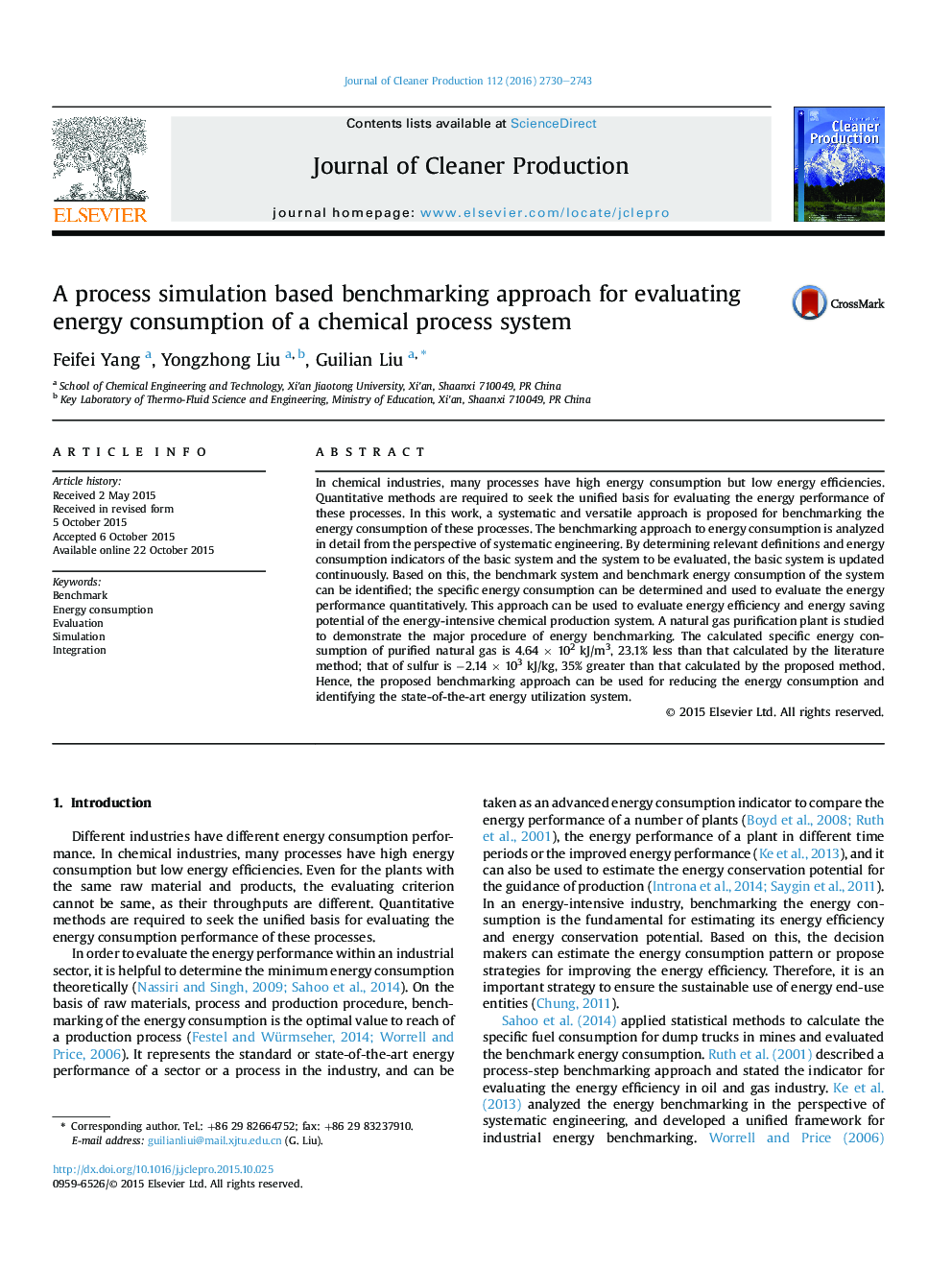| Article ID | Journal | Published Year | Pages | File Type |
|---|---|---|---|---|
| 10687862 | Journal of Cleaner Production | 2016 | 14 Pages |
Abstract
In chemical industries, many processes have high energy consumption but low energy efficiencies. Quantitative methods are required to seek the unified basis for evaluating the energy performance of these processes. In this work, a systematic and versatile approach is proposed for benchmarking the energy consumption of these processes. The benchmarking approach to energy consumption is analyzed in detail from the perspective of systematic engineering. By determining relevant definitions and energy consumption indicators of the basic system and the system to be evaluated, the basic system is updated continuously. Based on this, the benchmark system and benchmark energy consumption of the system can be identified; the specific energy consumption can be determined and used to evaluate the energy performance quantitatively. This approach can be used to evaluate energy efficiency and energy saving potential of the energy-intensive chemical production system. A natural gas purification plant is studied to demonstrate the major procedure of energy benchmarking. The calculated specific energy consumption of purified natural gas is 4.64Â ÃÂ 102Â kJ/m3, 23.1% less than that calculated by the literature method; that of sulfur is â2.14Â ÃÂ 103Â kJ/kg, 35% greater than that calculated by the proposed method. Hence, the proposed benchmarking approach can be used for reducing the energy consumption and identifying the state-of-the-art energy utilization system.
Related Topics
Physical Sciences and Engineering
Energy
Renewable Energy, Sustainability and the Environment
Authors
Feifei Yang, Yongzhong Liu, Guilian Liu,
